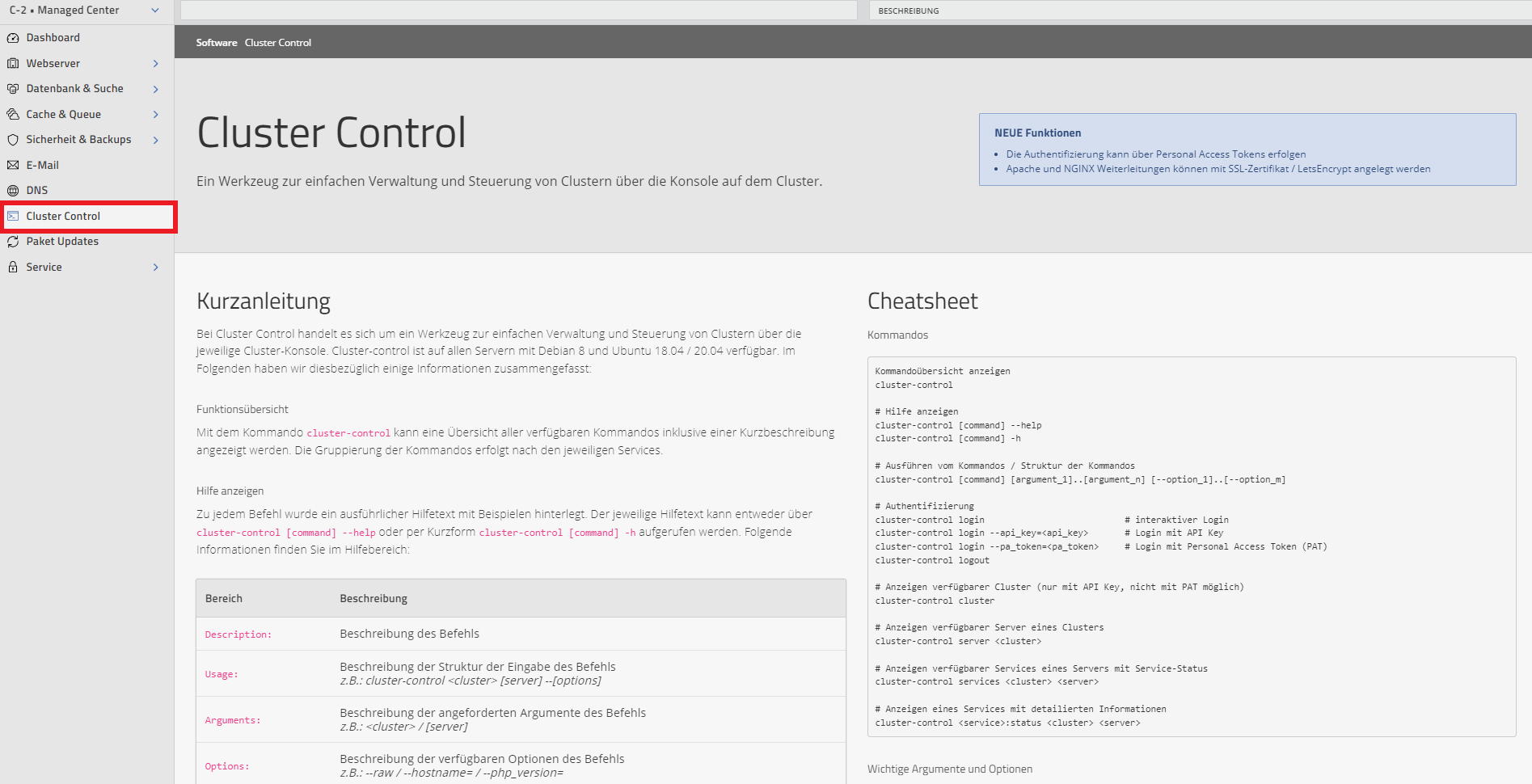FAQ about Cluster Control
Here you can find the most important information and updates about our CLI tool Cluster Control
What is Cluster Control?
Cluster Control is our specially developed command line tool that is available to all customers to manage and configure their clusters. With Cluster Control, server services such as Apache, NGINX, PHP-FPM, MySQL and Varnish can be started, stopped or restarted automatically. In this way, recurring tasks and deployments can be automated. Extensive changes can be made to the cluster configuration in just a few steps.
Advantages of Cluster Control
Instead of making changes to the configuration manually for each cluster individually, Cluster Control enables deployments to be simplified and accelerated through comprehensive automation. Even maxcluster customers with a larger number of clusters benefit from this tool, because changes can be made not only on one cluster, but also distributed across additional clusters. Using Cluster Control does not require logging into our Managed Center, as the tool can be operated directly from the console.
How do I activate and use Cluster Control?
Cluster Control is pre-installed by default on all our clusters running Debian 8, Ubuntu 18.04 as well as Ubuntu 20.04. To use the tool, you first need to log into the Managed Center and generate an API token in the "My Data" area. You need this token once for authentication in Cluster Control.
After activation, you can integrate Cluster Control into a CI or CD tool of your choice (for example, Jenkins, GitLab CI/CD or Codeship). The desired commands can thus be easily inserted into the respective CI/CD script and then executed, for example to automate recurring deployments. You can find a quick guide in the Managed Center in the "Cluster Control" section.
 Enable Cluster Control in maxcluster Managed Center
Enable Cluster Control in maxcluster Managed Center
What is new?
On 24.01.2022 we released a fork of Debian 8. Cluster Control is now available in the versions "cluster-control debian" for clusters running Debian 8 and "cluster-control" for clusters running Ubuntu 18.04., Ubuntu 20.04 and newer.
The differentiation has the background that Debian 8 is currently only compatible with PHP 7.2 and thus an older code base. Ubuntu 18.04, 20.04 and newer Ubuntu versions are additionally compatible with newer PHP versions, so this change brings the following advantages:
- Clusters running Debian 8 remain compatible with Cluster Control based on PHP 7.2 and can continue to be provided with new features to existing features in the Managed Center.
- Clusters running Ubuntu 18.04 and Ubuntu 20.04 can now be provided with new updates and features faster and more efficiently based on PHP 8.0.
This change has no direct impact on maxcluster customers, as the new versions have already been rolled out to all clusters by default. So you do not have to make any changes or adjustments on your servers. The operation and execution of the commands also remains the same in all versions of Cluster Control.
Do you have questions about the update?
As usual, our support is available 24/7/365. Just give us a call or send us an email, we will get back to you as soon as possible!

